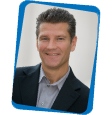Ten Books for Prospective Futurists

If you had to suggest ten books that a prospective futurist should read – starting from a tabula rasa (limited or no previous exposure), what would be on your list? It’s hard to do, and I cheated a little bit, by offering other suggestions and grouping them under loose categories or types.
1.Introductory Overviews
- Ed Cornish, Futuring: The Exploration of the Future, World Future Society, 2003 (Update of the 1977 Study of the Future)
- Wendell Bell, Foundations of Futures Studies: Human Science for a New Era: History, Purposes, and Knowledge, Volumes I and II, Transaction, 1996. (A description of the emerging discipline of futures studies. Volume I covers forecasting and Volume II is about values.)
- John Smart is working on a Foresight Guide that should be out soon and promised to be quite useful
2. Conceptual deep dives
- Bertrand de Jouvenel, The Art of Conjecture, Basic Books, 1967. (Explores how ideas about what may happen in the future can influence deciding what actions to take in the present)
- Willis Harman, An Incomplete Guide to the Future, San Francisco Book Company, 1976. (Describes ways to think about the future)
3. Classics (my favorite)
- Fred Polak, The Image of the Future, Elsevier, 1973. (The role of images of the future throughout history and in the present)
4. Classics (other)
- Alvin Toffler, Future Shock, 1984. (One of the most influential books ever written on the future. It argued that the pace of change was outstripping human capacity to deal with it.)
- Aldous Huxley, Brave New World, Harper & Row, 1933. (A dystopian novel of genetic engineering and pharmaceuticals)
- Edward Bellamy, Looking Backward: 2000-1887, Signet, 2002. (A utopian novel about a 19th century Bostonian being transported to the future)
- Yoneji Masuda, The Information Society As Post-Industrial Society, World Future Society, 1981. (Prescient preview of the information society)
5. Applications
- Peter Schwartz, The Art of the Long View: Planning for the Future in an Uncertain World, Doubleday, 1996. (Business book with lots of stories how scenarios impact organizations.)
- Kees Van Der Heijden, The Sixth Sense: Accelerating Organizational Learning with Scenarios, John Wiley & Sons, 2002. (More theoretical approach to the practice and benefits of scenario thinking)
6. How-to
- Andy Hines, & Peter Bishop, Thinking about the Future: Guidelines for Strategic Foresight, Social Technologies, 2007. (Guidelines on how to do strategic foresight from leading practitioners)
7. Science Fiction
- William Gibson, Neuromancer, Ace Books, 1984. (Pioneering cyberpunk novel)
- Kim Stanley Robinson, Red Mars, Spectra, 1993. (Story on the founding a colony on Mars)
- Bruce Sterling, Heavy Weather, Bantam, 1994. (Story about a world with drastically altered climate and weather)
- Iain Banks’ Culture novels (Space operas in distance future w/ thoughtful treatments of advanced AI)
8. Tech-driven future
- Ray Kurzweil , The Singularity Is Near: When Humans Transcend Biology, Viking 2005. (How exponential growth in information technology is leading us toward a “singularity” in which life as we know it is unrecognizable on the other side)
9. Environment-driven future
- Donella Meadows, Dennis Meadows, Jorgen Randers, The Limits to Growth: A Report for the Club of Rome’s Project on the Predicament of Mankind, Universe Publications, 1972. (Classic projection of exceeding planetary capacity derived from a systems model; See also the 20- and 30-year updates confirming initial model)
- Richard Slaughter, Biggest Wakeup Call in History, Foresight International, 2010. (Comprehensive, thorough and integrally-informed analysis of the pending environmental disaster if action is not taken)
10. Futurist profiles
- Joseph Coates, & Jennifer Jarratt , What Futurists Believe, World Future Society, 1987. (Interviews with 17 leading futurists of the time with analysis and summary)
About Andy Hines
Dr. Andy Hines is Program Coordinator at the University of Houston’s Graduate Program in Foresight, bringing together the experience he earned as an organizational, consulting, and academic futurist. He is also speaking, workshopping, and consulting through his firm Hinesight.
Before that, he was Managing Director of Social Technologies/Innovaro, and served as an Adjunct Professor with the university since 2004. Hines enjoyed earlier careers as a consulting and organizational futurist. He was a partner with Coates & Jarratt, Inc., a think tank and consulting firm that specialized in the study of the future. He was also Futurist & Senior Ideation Leader at Dow Chemical with a mission of using futures tools and knowledge to turn ideas into new business opportunities. Before that, Hines established and ran the Global Trends Program for the Kellogg Company.
Hines is motivated by a professional hunger to make foresight practical and useful, and he believes that foresight can help deliver the insight that is so needed in today’s organizations and the world. His goal, he says, is to infect as many change agents as possible with this message. Thus, he has honed a skill set designed to make foresight more actionable in organizations.
In this pursuit, he has authored five books: Teaching about the Future: The Basics of Foresight Education (Palgrave Macmillan, 2012); ConsumerShift: How Changing Values Are Reshaping the Consumer Landscape (No Limits Publishing, 2011); Thinking About the Future: Guidelines for Strategic Foresight (Social Technologies, 2007); 2025: Science and Technology Reshapes US and Global Society (Oak Hill, 1997); and Managing Your Future as an Association (ASAE, 1994) and has another in the hands of publishers: Teaching about the Future: The Basics of Foresight Education. He has also authored dozens of articles, speeches, and workshops, including the 2003 Emerald Literati Awards’ Outstanding Paper accolade for best article published in Foresight for “An Audit for Organizational Futurists” and the 2008 award for “Scenarios: The State of the Art.” He has appeared on several radio and television programs, PBS Houston, KRIV-26 News, and the CBS “Early Show.” He also co-founded and is former Chair of the Association of Professional Futurists.

